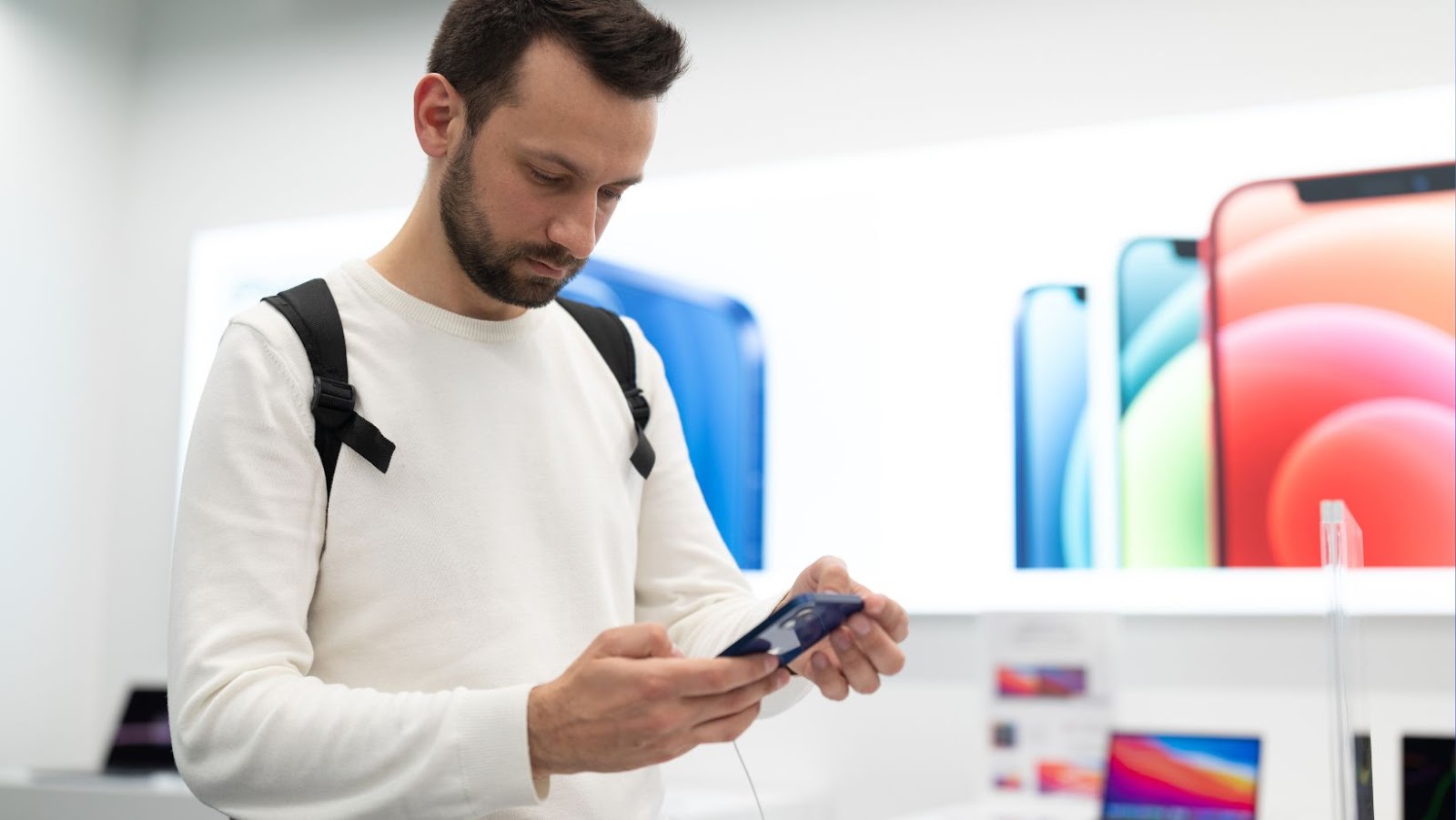TikTok is a growing social media app with more than 1.5 billion downloads, making it one of the most popular apps of its time. It has quickly gained popularity due to its easy-to-use editing tools, fun visuals and combination of music and sound clips, which allows users to create unique and exciting video content for their followers.
However, despite these attractive features, many people are concerned about the type of personal information TikTok collects from its users. As with any other social media platform or application, it is crucial to understand who has access to our data and how they use it.
In this article, we will explore:
- What information TikTok collects,
- Why they collect it,
- How they use your data, and
- What measures you can take to protect your privacy while using TikTok.
What Information Does TikTok Collect?
TikTok is a social media platform that is hugely popular amongst teenagers. As it has grown in popularity, it has garnered a lot of attention from regulators and privacy activists, who have raised questions about the kinds of information that the app collects and stores.
In this article, we will look at the kinds of information that TikTok collects, and how it uses this information.
Profile Information
When you register for an account on TikTok, they may ask for your personal information, such as your name, email address, birthdate, phone number, and profile photo. You can also add other information like a bio or profile URL.
Additionally, once you’ve established an account with TikTok, the website collects your activity on their platform by tracking how often you use the site and what content you give likes or comments to.
TikTok also collects the content that you choose to upload and share on their network. This includes things like videos, photos and Live broadcasting sessions along with any comments or captions associated with them. In addition, if you connect to 3rd party services like Facebook or Instagram through your TikTok account then those companies may share additional data about your activities on their platforms with TikTok.

Location Data
TikTok is a rapidly growing mobile platform that allows users to express themselves by creating and sharing short videos. While the app is available worldwide, certain features and services may vary depending on the user’s geographic location. In order to provide these features, TikTok must collect and process information about the user’s location.
Location data can be used for many purposes, including providing tailored content and improving user experience.
Location data may be collected through direct information provided by the user (e.g., when they share their precise location via in-app settings), or passively collected from mobile device IDs like IP addresses or GPS/WiFi signals. This data may also be associated with other account details like emails or profile pictures, so that TikTok can serve more relevant content based on where they are located. However, users have control over what information is collected from their device by managing the privacy settings in their profile Settings view. For example, users can limit location services to specific places only or delete all previously shared locations for improved privacy protection.
Technical Information
TikTok collects technical information about the type of device you are using, including the model and operating system. It also looks at your phone number, IP address, language used on the app, mobile carrier and app settings.
Other information that TikTok gathers includes:
- Location data
- Associated activities like likes and comments
- Search terms used in the app
Furthermore, TikTok collects detailed user profile information such as date of birth, gender and contact information including email addresses.
Lastly, it records all browsing activity within the app such as what videos have been watched, what content has been uploaded or shared by users and other engagement metrics.
Contact Information
When users sign up for TikTok, they are prompted to give their contact information, such as their email address and phone number. This information is used to help verify identity and provide better user experience.
In addition, TikTok also collects information about the user’s devices and the way in which they access the platform. This includes things like IP addresses, browser type, operating system type and version, device type, language preferences, mobile device unique identifiers (IMEI/UDID), mobile network information and more. All of this data is collected so that TikTok can provide a better user experience on the platform.
TikTok also collects personal data such as age, gender, country of residence and interests in order to provide users with more targeted content and offers. On iOS devices specifically, location data may be collected if users choose to allow access to their location in their settings.
All of this helps ensure that TikTok can deliver relevant content tailored to each individual’s interests and needs.
Payment Information
TikTok collects and processes limited personal information of users who make a purchase on the platform, including payment card details and shipping addresses. This is done securely through a payment processors, such as Stripe, Apple Pay, and PayPal. Your payment information is then transferred to the merchant and is not stored or processed within TikTok’s systems. API tokens are used to transfer data securely between the user’s payment processor account and their own device. However, if you choose to save your payment information in order to expedite future purchases, it could be stored within TikTok’s systems until it is deleted.
Additionally, some of TikTok’s partners may store payment information for specific reasons such as IT integrations or fraud prevention services. Usually this information will only be available to those partners for as long as necessary before being securely destroyed afterwards. By buying from partners on TikTok you are consenting to this policy and agree that your personal data may be shared with these third parties solely for the purpose of allowing secure payments and providing a better service experience.

Other Data
TikTok collects a variety of other data from users including, but not limited to, the following:
- Ad interaction data – This includes information about how users interact with ads displayed on the platform.
- Location data – This includes GPS coordinates collected when a user visits a store or uses location-based services available on the platform.
- Social media data – This includes Facebook and Twitter profile information, as well as any other social media sites that you have linked your TikTok account to.
- Cookies and other tracking technologies – These are used to identify user preferences and customize content accordingly. They can also be used to collect various statistics such as page views, time spent on a page, number of clicks, etc., which enables TikTok to improve its services.
- Voice and audio data – This is collected when a user speaks or records audio content, such as voice notes or video messages.
- Videos uploaded by users – TikTok will store videos that you have uploaded for future use by other users for entertainment purposes or for features like duets with other users.
Does TikTok Tell You Who Viewed Your Profile 2022 reddit
TikTok does not currently provide users with the option to know who has viewed their profile. There is no official feature within the app that allows users to find out for certain if any particular user or group of users has seen their profile page, however many third-party websites claim to offer this service.
Without using a third-party website, there are still methods that can be used to gauge profile views on TikTok, like analyzing follower and like counts on posts or observing patterns in activity such as comment frequency. However, these methods are not definitive, as they only provide insights into possible interpretations rather than tangible evidence of who has been viewing your profile.
When it comes to user data collection, it’s important to remember that TikTok takes privacy seriously. Despite its reputation among some as an unsafe platform for younger generations, some of its systems rely solely on recognition technology (e.g., facial recognition) instead of personal data collection for data security and verify accounts in order to reduce online risks associated with the platform. Even when collecting identifiable information from its users, whether through comments or direct messages, all sensitive data is encrypted before being stored in its servers; this protects user privacy while also allowing TikTok to provide an enjoyable experience while using its app(s).
Conclusion
The type of data collected by the popular social media site TikTok will depend on how you use the platform and what type of device you are using. If users choose not to share their location, personal information such as name and address, as well as any other sensitive user data such as login activity and online activities, TikTok cannot collect this information.
TikTok does collect its users’ IP addresses, which helps it customize its own services and content. Other information such as device model and activities like watching videos or using certain features is tracked if the customer consents. It also collects browsing history, search terms, demographic data (including age and gender), devices used, locations accessed from, payment information (if applicable), etc. In addition to its own proprietary data collection practices, TikTok shares some user information with third parties for targeted advertising purposes.
When it comes to keeping user data safe and secure, TikTok employs various safety protocols including:
- Encryption technology on terminals used for financial transactions;
- Threat-prevention measures;
- Physical security restrictions;
- Firewalls;
- Filters;
- Anti-spam technologies;
- Analyses of user actions using automated systems;
- Monitoring of suspicious activities;
- Secure Sockets Layer authentication technology (SSL);
- Use of strong passwords to prevent unauthorized access among other measures.
In conclusion, users can make sure they are only sharing what is necessary commitment to transparency when it comes to collecting data that enables them to personalize the platform. With due diligence regarding account security settings, and an understanding privacy policies, users are able to take a greater sense of control over the kind of information being collected about them on the platform.


More Stories
How To Select The Right Electric Heater For Your Home
Trusted HVAC Services for AC Repair and Installation in Erie, CO
What Are Some Best Practices For Social CRM?